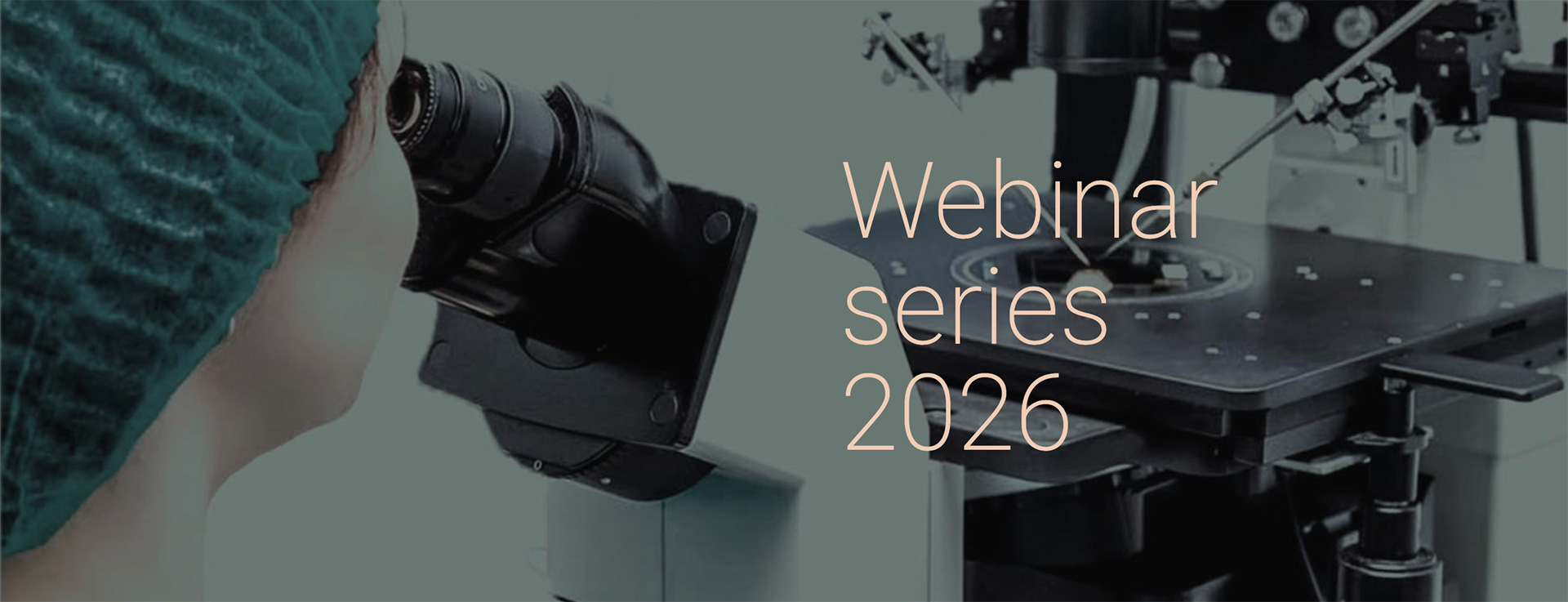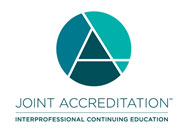Specialization in Assisted Reproduction Program
MODALITY: Online
CENTER: IVIRMA Global Education
Specialization in Assisted Reproduction Program
MODALITY: Online
CENTER: IVIRMA Global Education
Specialization in Assisted Reproduction Program
AREA:
LANGUAGE: English
ProgramData

Hours:
80 theoretical

Enrollment:
800 $

Type:
Online courses

Location:
IVIRMA Campus online
Editions
Description
General objective
To update and expand knowledge on reproductive medicine based on already acquired notions about human reproduction and endocrinology
Specific objectives
- To review endocrinology, physiology and anatomy of human reproduction
- To update knowledge on the epidemiology of sterility
- To get to know the current protocol for the basic sterility study
- To review the most relevant pathology in both men and women related to fertility
- To acquire new knowledge about the different ART and their potential complications
- To incorporate guidelines on diagnosis and action protocol on special situations in reproduction
- To provide information on the legal framework in which ART is carried out
Physicians and Other Healthcare Professionals
This online course is jointly accredited with Thomas Jefferson University Office of Continuing Professional Development.
Academic information
Competencies
Course 1: Searching for Sterility Origin
>To identify situations related to sterility/infertility
>To determine when it is necessary to corder studies on patients and which ctests are needed
>To determine the cause of infertility cand a diagnosis by analyzing cinformation from a patient’s medical chistory and examinations
>To understand when to utilize surgical cinterventions before ART
Course 2: Assisted Reproduction Techniques
>To identify the most appropriate ovarian stimulation or endometrial preparation regimen
>To select the cases in which a more precise evaluation or selection of gametes or embryos is indicated
>To maximize the chances of having a healthy live newborn
>To understand the application of genetics in assisted reproduction
>To prevent or treat ART side effects
Course 3: New Challenges in Infertility Treatments
>To detect circumstances where a cmultidisciplinary approach to ART would be prudent
>To rely on expertise from disciplines adjacent to or outside of fertility medicine, such as genetics, cancer, immunology, and microbiology
>To successfully treat patients who have cancer, implantation failure, or persistent viral infections
>To develop the diagnostic algorithm and determine the additional tests each patient requires in accordance with his or her underlying pathology and to personalize a therapy approach
Program
Searching for Sterility Origin
Module 1: Female Sterility
1.1 Ultrasound in Reproductive Medicine
1.2 Endometriosis
1.3 Uterine fibroids
1.4 Adenomyosis
1.4 Müllerian malformations
1.5 Hydrosalpinx
1.6 Poor response
Module 2: Male Sterility
2.1 Andrological assessment
2.2 Varicocele
2.3 Seminal tract infection
2.4 Sperm freezing/semen bank
2.5 Genetic origin of male infertility
Assisted Reproduction Techniques
1.1 Preimplantation genetic testing (PGT)
1.2 Vitrification of oocytes and embryos
1.3 Oocyte in vitro maturation
1.4 Sperm selection in in vitro fertilization (IVF)
1.5 Artificial intelligence
1.6 Medications for ovarian stimulation
1.7 Annex. Schemes of stimulation protocols for IVF and endometrial preparation
1.8 New stimulation protocols
1.9 Preconception genetic compatibility test
1.10 Complications that can arise from assisted reproduction techniques
New Challenges in Infertility Treatments
Module 1: Special situations in human reproduction
1.1 Recurrent miscarriage
1.2 Implantation failure
1.3 Chronic viral infections (HIV and hepatitis) and reproduction
1.4 SARS-CoV-2 and assisted reproduction
1.5 Approach to reproduction in cancer patients
Module 2: Advances in assisted reproduction
2.1 Genetics and reproduction
2.2 Ovarian rejuvenation
2.3 Endometrial receptivity
2.4 Microbiome
2.5 Immunology under the endometrium
Curso finalizado
Related courses

Online
Molecular control of follicular dominance and atresia – Casarini
Start: 17/02/2026
Webinars
Course fee:
Free

Online
Past, present and future of sperm assessment -Garrido
Start: 18/02/2026
Webinars
Course fee:
Free

Online
Embryo plasticity: cellular and molecular aspects – Coticchio / Ottolini
Start: 24/02/2026
Webinars
Course fee:
Free
5 months to complete the entire program from the time you enroll in the course.
80 theoretical
IVIRMA Campus online
800 $
Program Data
IVIRMA Campus online
This online course is jointly accredited with Thomas Jefferson University Office of Continuing Professional Development.
Intended for
Physicians and Other Healthcare Professionals
Description
General objective
To update and expand knowledge on reproductive medicine based on already acquired notions about human reproduction and endocrinology
Specific objectives
- To review endocrinology, physiology and anatomy of human reproduction
- To update knowledge on the epidemiology of sterility
- To get to know the current protocol for the basic sterility study
- To review the most relevant pathology in both men and women related to fertility
- To acquire new knowledge about the different ART and their potential complications
- To incorporate guidelines on diagnosis and action protocol on special situations in reproduction
- To provide information on the legal framework in which ART is carried out
Skills
Course 1: Searching for Sterility Origin
>To identify situations related to sterility/infertility
>To determine when it is necessary to corder studies on patients and which ctests are needed
>To determine the cause of infertility cand a diagnosis by analyzing cinformation from a patient’s medical chistory and examinations
>To understand when to utilize surgical cinterventions before ART
Course 2: Assisted Reproduction Techniques
>To identify the most appropriate ovarian stimulation or endometrial preparation regimen
>To select the cases in which a more precise evaluation or selection of gametes or embryos is indicated
>To maximize the chances of having a healthy live newborn
>To understand the application of genetics in assisted reproduction
>To prevent or treat ART side effects
Course 3: New Challenges in Infertility Treatments
>To detect circumstances where a cmultidisciplinary approach to ART would be prudent
>To rely on expertise from disciplines adjacent to or outside of fertility medicine, such as genetics, cancer, immunology, and microbiology
>To successfully treat patients who have cancer, implantation failure, or persistent viral infections
>To develop the diagnostic algorithm and determine the additional tests each patient requires in accordance with his or her underlying pathology and to personalize a therapy approach
Students info
In support of improving patient care, this activity has been planned and implemented by Thomas Jefferson University and IVIRMA Global Education. Thomas Jefferson University is jointly accredited by the Accreditation Council for Continuing Medical Education (ACCME), the Accreditation Council for Pharmacy Education (ACPE), and the American Nurses Credentialing Center (ANCC), to provide continuing education for the healthcare team.
COURSE 1:
Physicians: This educational activity is designated for a maximum of 30 AMA PRA Category 1 CreditTM. Physicians should only claim credit commensurate with the extent of their participation in the activity.
Other Healthcare Professionals: This educational activity is designated for 30 AMA PRA Category 1 CreditTM. Participants should claim only the credit commensurate with the extent of their participation in the activity.
COURSES 2 and 3:
Physicians: This educational activity is designated for a maximum of 25 AMA PRA Category 1 CreditTM. Physicians should only claim credit commensurate with the extent of their participation in the activity.
Other Healthcare Professionals: This educational activity is designated for 25 AMA PRA Category 1 CreditTM. Participants should claim only the credit commensurate with the extent of their participation in the activity.

Program
Program
Searching for Sterility Origin
Module 1: Female Sterility
1.1 Ultrasound in Reproductive Medicine
1.2 Endometriosis
1.3 Uterine fibroids
1.4 Adenomyosis
1.4 Müllerian malformations
1.5 Hydrosalpinx
1.6 Poor response
Module 2: Male Sterility
2.1 Andrological assessment
2.2 Varicocele
2.3 Seminal tract infection
2.4 Sperm freezing/semen bank
2.5 Genetic origin of male infertility
Assisted Reproduction Techniques
1.1 Preimplantation genetic testing (PGT)
1.2 Vitrification of oocytes and embryos
1.3 Oocyte in vitro maturation
1.4 Sperm selection in in vitro fertilization (IVF)
1.5 Artificial intelligence
1.6 Medications for ovarian stimulation
1.7 Annex. Schemes of stimulation protocols for IVF and endometrial preparation
1.8 New stimulation protocols
1.9 Preconception genetic compatibility test
1.10 Complications that can arise from assisted reproduction techniques
New Challenges in Infertility Treatments
Module 1: Special situations in human reproduction
1.1 Recurrent miscarriage
1.2 Implantation failure
1.3 Chronic viral infections (HIV and hepatitis) and reproduction
1.4 SARS-CoV-2 and assisted reproduction
1.5 Approach to reproduction in cancer patients
Module 2: Advances in assisted reproduction
2.1 Genetics and reproduction
2.2 Ovarian rejuvenation
2.3 Endometrial receptivity
2.4 Microbiome
2.5 Immunology under the endometrium

